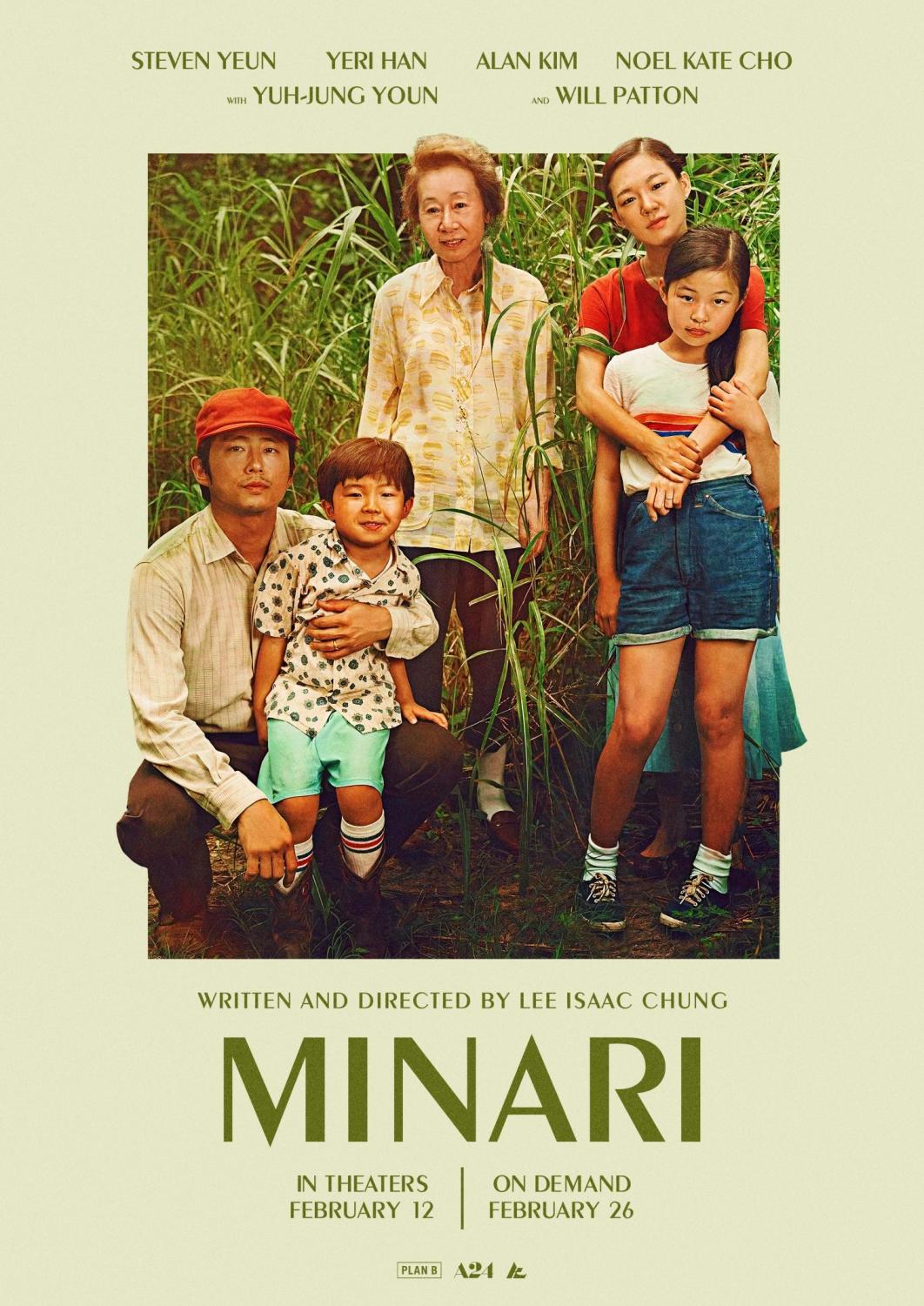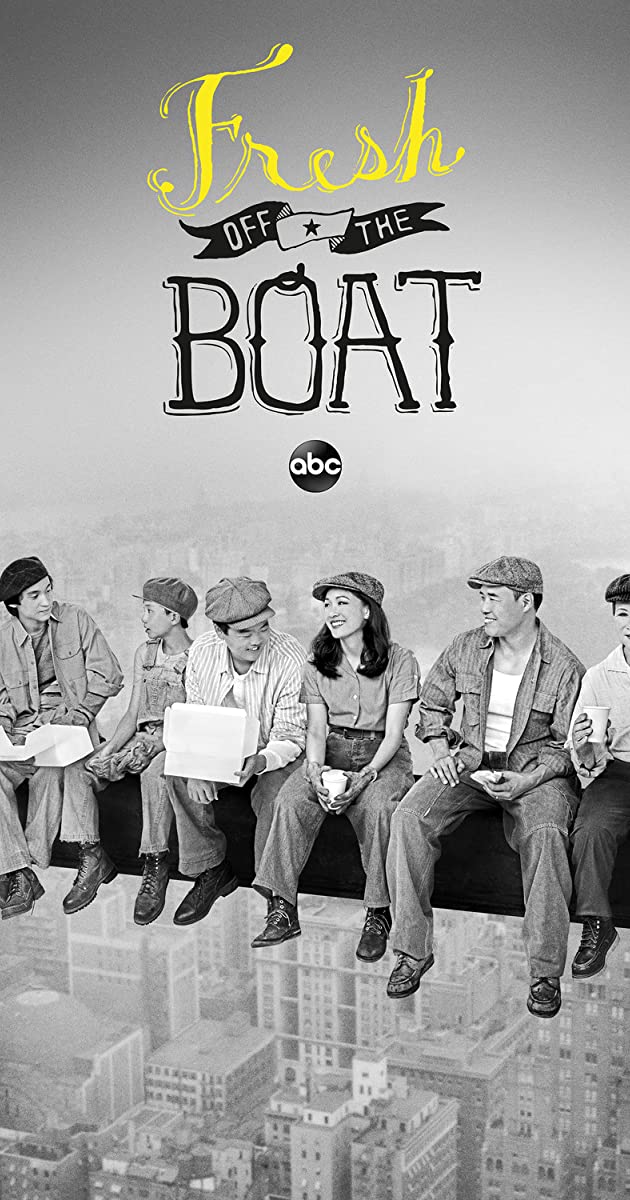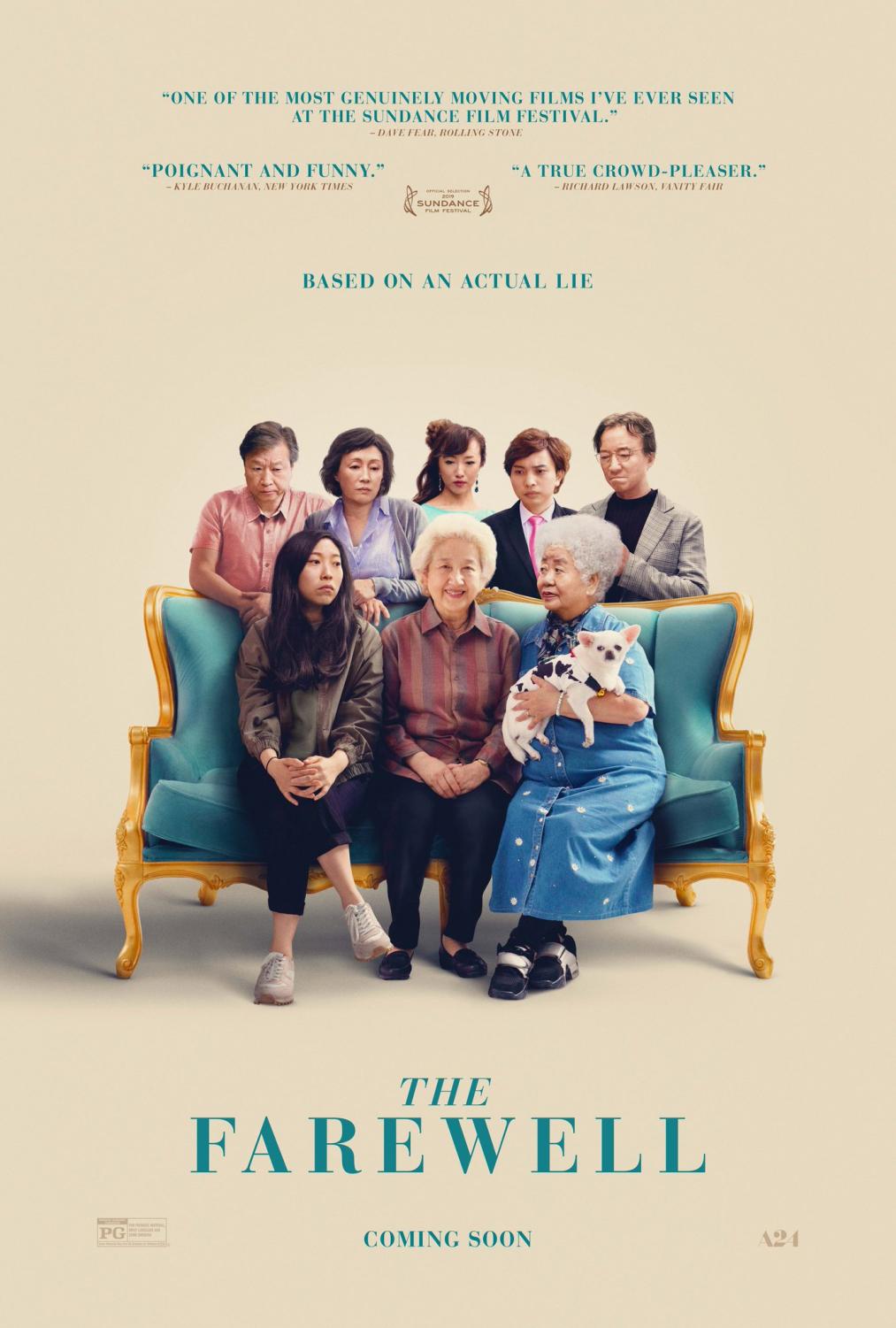Hyphenated Americans in Media
Examining how the hyphenated American experience is portrayed in films and TV shows
‘Minari’ (Film) — Brian
“Minari minari, wonderful wonderful,” Soon-ja said.
Minari, a versatile edible plant growing alongside streams of water traditional to East Asia, is the namesake of the 2020 Golden Globe Award-winning film directed by Lee Isaac Chung.
The film depicts the journey of the Korean-American Yi family as they move from California to Arkansas in 1983 to pursue father Jacob’s goal of opening his own Korean produce farm. Jacob (Steven Yeun) and his wife Monica (Han Ye-ri) are on opposite ends of a spectrum: while Jacob is hopeful for a new life awaiting them, Monica is constantly concerned about the family’s livelihood and their young son David’s heart condition. David and his older sister Anne are often together while their parents work in a chicken hatchery. The family eventually chooses to have grandmother Soon-ja travel from South Korea to America and care for the children.
Throughout the film, Chung maintains commendable realism in depicting the hyphenated American experience. There are countless details hidden throughout the film like gems that resonate with me as a first generation Asian-American myself, and the Yi family is cast with great synergy reflecting a realistic family.

Jacob and Monica constantly fight when they encounter bumps in Jacob’s business plans, but they always revert to their core motive of creating a fresh start for their family and a better future for their children. David and Anne hide away during these arguments, creating paper airplanes with messages of “Don’t fight” scribbled on them in order to throw them between their parents and ease the tension, adding another layer of authenticity to their family dynamic. Even the nonverbal cues and sighs exchanged between Jacob and Monica with their children silently watching are reminiscent of my own parents’ occasional fights, communicating a silent struggle that so many families face.
The film tackles its main theme — the concept of the American dream — extremely well, as it reveals how elusive and unclear that dream can be. When the Yi family first moves into its small, rural home in Arkansas, everyone is visibly disappointed by the living conditions — a sentiment identical to what my family experienced when moving from Texas to California. Just like the Yi family, my parents constantly recount their motive for moving to America, for a chance at a new life and a better life for my sister and I, one they fulfilled by starting from minimum wage jobs and working their way up.
A touchingly honest look into the lifestyle of many hyphenated American families, with hidden elements of realism that help viewers relate to the experience even if they’ve never encountered them exactly before.
The film’s namesake, the symbol of the minari plant, as well as nature creates a metaphor for adapting to life in America as a hyphenated American. The minari plant thrives around water and requires little care — yet it is strong and versatile, ready to be used as an herb. When David and Soon-ja make trips to a nearby stream to plant minari, it’s a rare chance for Soon-ja to pursue gardening of her own and for David to accompany her as they tease each other.
In a poetic ending, Soon-ja unwittingly starts a fire that burns through the farm and places the family back at square one, just as Jacob closes a deal with several early customers. The constant struggle between elements mirrors the unpredictable events threatening the success of hyphenated Americans everywhere, yet several key aspects of life are preserved regardless of hardships they may face, such as the family’s resilience and the flexibility represented by the minari plant.
“Minari” offers a touchingly honest look into the lifestyle of many hyphenated American families, with hidden elements of realism that help viewers relate to the experience even if they’ve never encountered them exactly before. From a cohesive cast to strong natural symbolism, the film delivers a truly meaningful glimpse into the hyphenated American experience.
‘Fresh Off the Boat’ (TV Show) — Brian
Eddie Huang is a hip-hop loving, cooking-obsessed Taiwanese-American. Immigrating with his family to America in 1995 when he was 11 years old, Eddie seemed to defy every Asian American stereotype. Instead of studying, he frequented basketball courts with his friends. Instead of abiding by rules, he followed his inner voice, clashing with anyone, whether it was with his parents or school administrators.
 Eddie later became a well-known figure in the restaurant industry of New York, creating the popular Baohaus restaurant in 2009. His autobiography, “Fresh Off the Boat: A Memoir,” details his upbringing and journey growing up in America as a hyphenated American. The book’s tone is distinctly sharp and unapologetic, and it traverses heavier aspects of his experience as an Asian American, ranging from his father’s physical abuse to trying drugs and getting in trouble with the police. This was the story Eddie wanted to tell: an honest glimpse of his reality adapting to life in America, one that broke the mold of a common immigrant narrative, yet reaffirmed the racism and violence he often faced.
Eddie later became a well-known figure in the restaurant industry of New York, creating the popular Baohaus restaurant in 2009. His autobiography, “Fresh Off the Boat: A Memoir,” details his upbringing and journey growing up in America as a hyphenated American. The book’s tone is distinctly sharp and unapologetic, and it traverses heavier aspects of his experience as an Asian American, ranging from his father’s physical abuse to trying drugs and getting in trouble with the police. This was the story Eddie wanted to tell: an honest glimpse of his reality adapting to life in America, one that broke the mold of a common immigrant narrative, yet reaffirmed the racism and violence he often faced.
In 2015, ABC released “Fresh Off the Boat,” a TV series aiming to recreate Eddie’s (Hudson Yang) life story in the full scope of a sitcom. The series follows the Huang family’s new life after moving from Washington D.C. to Orlando, Florida to pursue Eddie’s father Louis’s (Randall Park) dream of opening his own restaurant. Throughout the series, Eddie’s mother Jessica (Constance Wu) follows a strict parenting style characterized by tough love and pursues creative writing in her free time. While Eddie cares far more about shooting hoops and jamming out to rap music than studying, his two younger brothers are his polar opposites — Emery (Forrest Wheeler) is charismatic and intelligent, sailing through school while catching the attention of female peers, and Evan (Ian Chen) is a goody two-shoes who obeys all rules and studies the hardest, earning the most respect from his mother. On paper, these characters are realistic examples of immigrants, yet they maintain unique identities that break any mold or stereotype.
However, the TV adaptation of the narrative falls short in a few crucial ways. Many serious elements of Eddie’s upbringing have been glossed over, including his father’s cruel streaks and the violent encounters he often faced as a child. The characters’ complex identities have been seemingly watered down to match prior expectations of Asian Americans in media, from Jessica’s exaggerated, stubborn parenting (and even her overdone accent) to oversimplifications of Chinese culture (simply equating the color red to good fortune when it came time for a Chinese New Year episode).
In my own household, my parents aren’t as gung-ho about studying away every minute of free time — they greatly value instilling strong morals and social skills in me as well. Our Chinese culture is manifested in many ways in my own household, from following special chopstick table manners each meal to paying respect to ancestors on special Chinese holidays. The show touches on many important elements of the hyphenated American experience, but it tends to present them in a humorous and shallow manner.
While the book is a more authentic representation of the true hyphenated American experience, “Fresh Off the Boat” still has great value in making strides for future shows and films that may follow. The show features a cast of dozens of Asian American actors and actresses, an unprecedented occurrence in family TV shows or sitcoms of its kind. Though some elements of the hyphenated American experience are blurred in the show, the tradeoff allows for a greater audience and the potential for future productions to tackle these issues in greater depth. And taking a step back from the lens of realism and accuracy, the show is always great for cracking a laugh — the Huangs are always scheming up a plot in some way or another, highlighting the sense of family and good-nature core to the show’s brand.
‘The Farewell’ (Film) — Claire
Based On An Actual Lie.
The words appear at the start of the film before fading into the black screen. Lulu Wang’s 2019 movie “The Farewell” depicts the story of a Chinese American family who learns their grandmother (Zhao Shu-zhen) is dying of cancer. Rather than telling her, the family returns to China to visit her under the guise of a wedding.
“The Farewell” straddles the different perspectives between Eastern and Western culture. Billi (Awkwafina), the protagonist, has spent most of her life in America but remains close to her Nai Nai — paternal grandmother — who cared for her as a toddler in China. She is appalled that the family would hide the information of the sickness from her grandmother. Yet the others remain insistent that it’s best not to tell Nai Nai, including Nai Nai’s doctor, who acknowledges that many families in China would do the same.
 Later, when Billi’s father — who has also lived in America and been influenced by Western culture — voices his own doubts, both are rebutted by the fact that Nai Nai did the same for her husband when he was diagnosed. In China, hiding the diagnosis to avoid affecting the patient psychologically is not really a debate, yet Billi continues to struggle with the clashing values of the East and the West.
Later, when Billi’s father — who has also lived in America and been influenced by Western culture — voices his own doubts, both are rebutted by the fact that Nai Nai did the same for her husband when he was diagnosed. In China, hiding the diagnosis to avoid affecting the patient psychologically is not really a debate, yet Billi continues to struggle with the clashing values of the East and the West.
At its core, the conflict in “The Farewell” demonstrates opposing values between the culture Billi was raised in compared to that of her family. The difference is even mirrored in the titling of the film itself: the Chinese title translates to “Don’t Tell Her,” as what the family insists, whereas the English “The Farewell” captures Billi’s intention in taking this trip. Billi’s uncle claims that Billi’s intention stems from the focus on individuality in Western culture, while saying that Eastern cultures place greater emphasis on collectivism and family rather than the individual. Yet it is also Billi who dropped what she was doing to come on the trip when the rest of the family had expected her not to.
Thus, the divisions of West and East are not as clear as the characters claim them to be. Billi is viewed by the others as Westernized, but she no doubt has been influenced by Chinese culture in her upbringing. It is difficult to draw a clear line between the aspects of her identity that have been influenced by the two cultures, as they often overlap. The film acknowledges this synergistic identity, as when Billi is asked whether she prefers America or China, her first instinct is to respond, “It’s different,” rather than pick one. This highlights the experience of hyphenated Americans: they cannot simply choose one culture over the other when they have grown up with both as influences.
Similarly, there is no obvious solution for Billi to choose. Ultimately, she also works to uphold her family’s dishonesty but there is little indication as to whether it’s because she became convinced it was right or if she does it for the sake of appeasing her family. It’s not as simple as choosing a “right” answer: each has its reasons and benefits appealing to different cultural values, and Billi is at the intersection of them.
Another interesting quality about “The Farewell” is that it is bilingual, switching between English or Chinese depending on the situations the characters encounter. This enhanced the overall experience — for me personally, the different languages mirrored the experience of being a hyphenated American.
Watching it in America, the Chinese portions are helpfully translated in the subtitles, but it made me wonder if I would be able to fully understand it without subtitles. I am fluent enough to tell that Billi speaks accented Chinese, perhaps fluent enough to comprehend the vocabulary of daily conversation without translation, but I can’t be sure. I am connected enough to China that I am familiar with the multiple different terms for relatives — where there are distinctions in maternal or paternal side and relative age — yet I am less connected in the limited number of times that I have actually been able to use those terms.
Similarly, the film also contains a brief examination of Billi’s experience growing up in America separate from her relatives. It explores how she felt lost and separated when she could no longer see her grandparents, how she was confused and frustrated when she knew her parents were worried and wouldn’t tell her what was going on and how those feelings resurfaced upon the current situation with her grandmother.
Overall, “The Farewell” crafts a story of being a hyphenated American with competing cultural values, exemplifying what it feels like to be torn between family and the culture one grew up with. Through this tale of a lie, Lulu Wang illustrates an experience that many hyphenated Americans can relate to.

